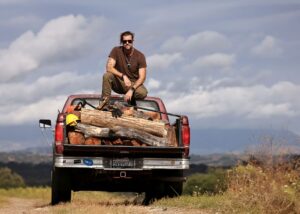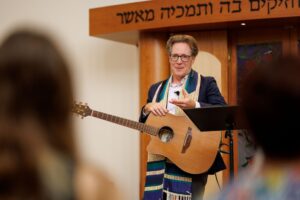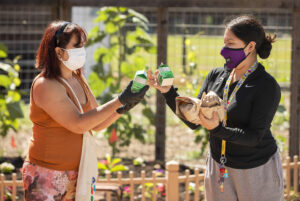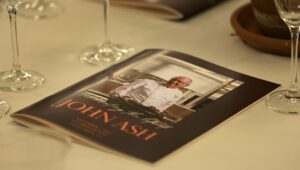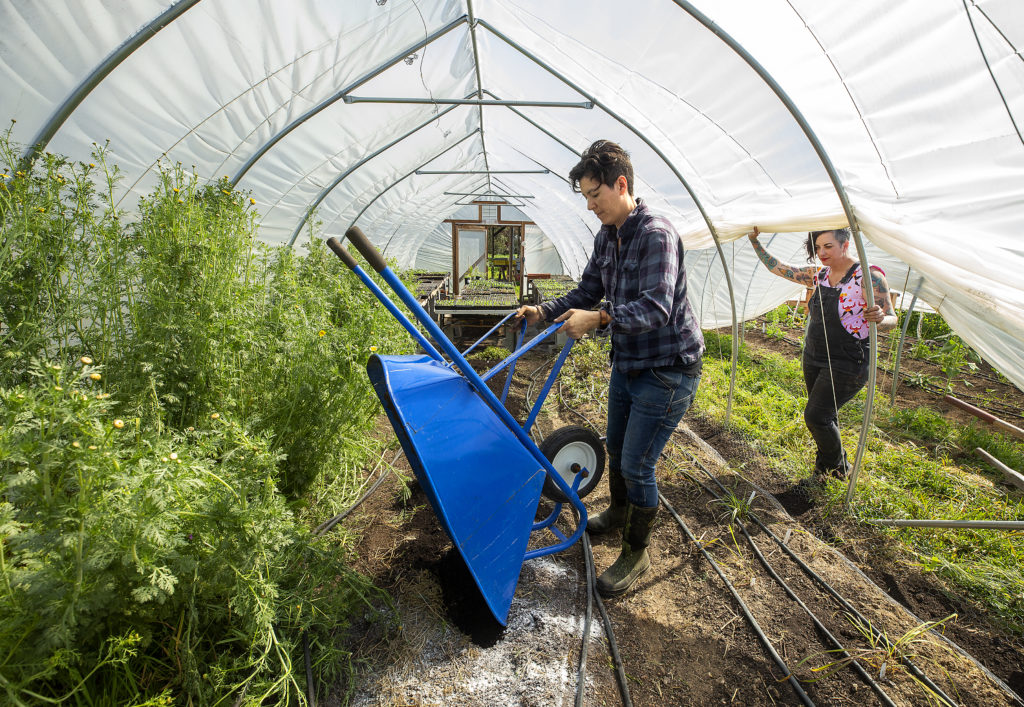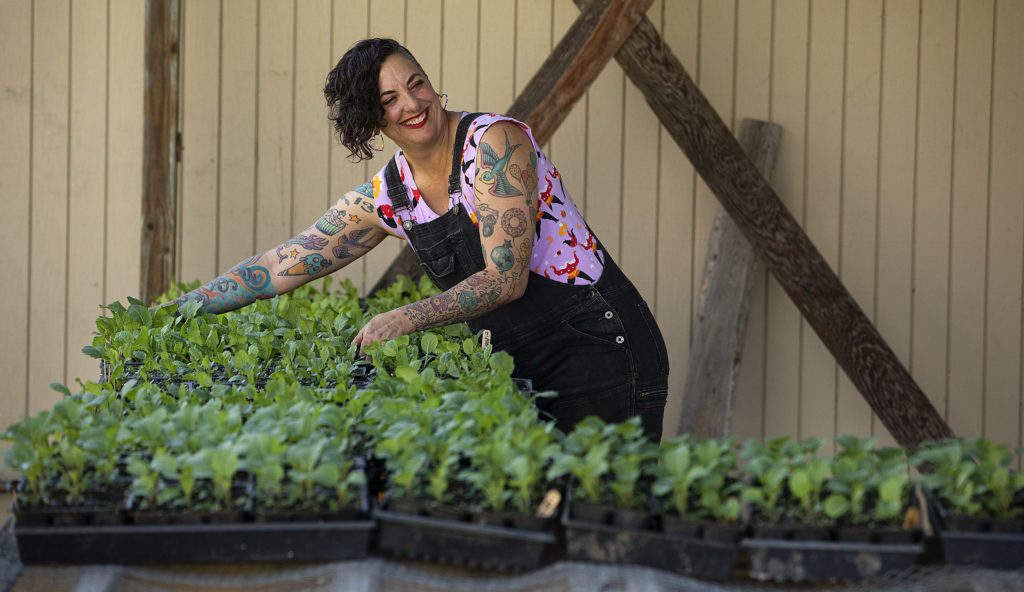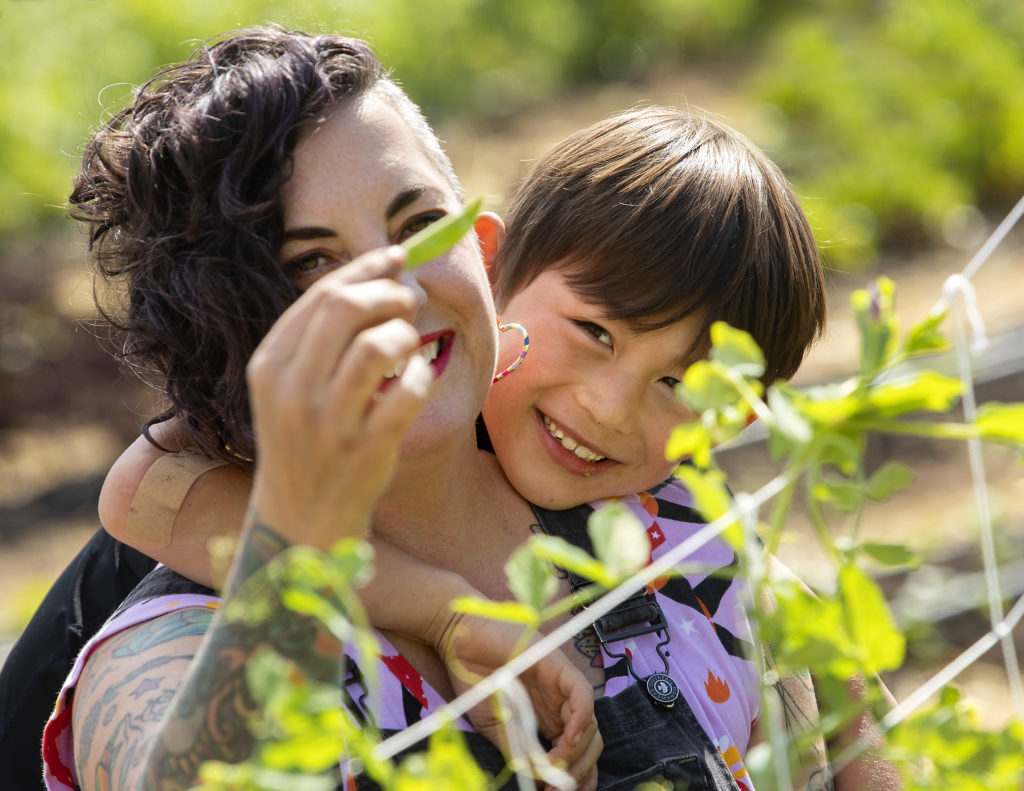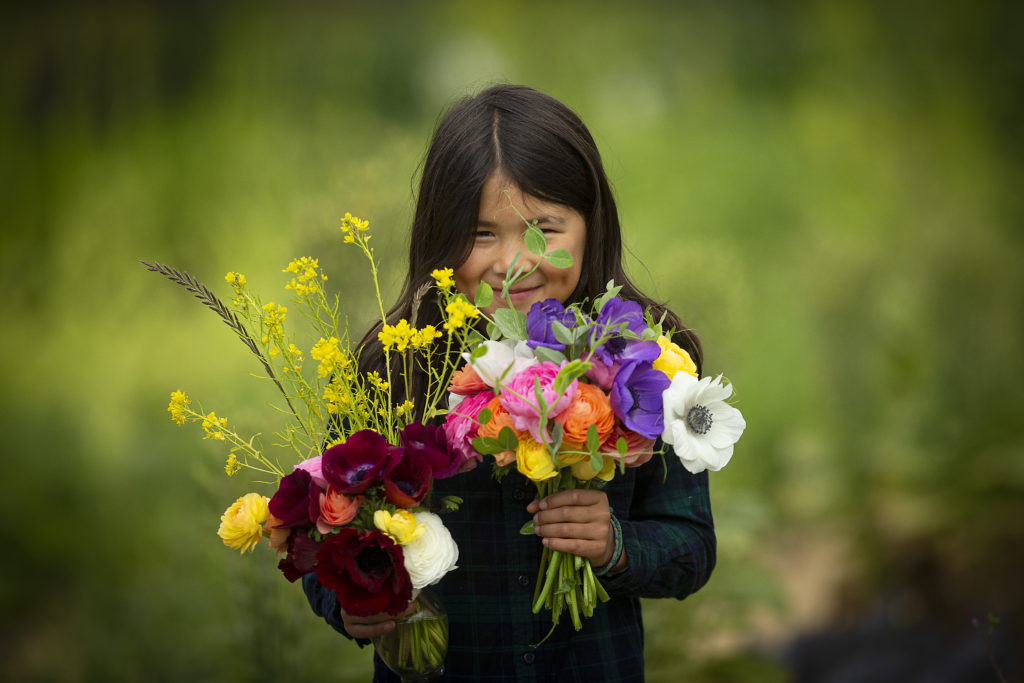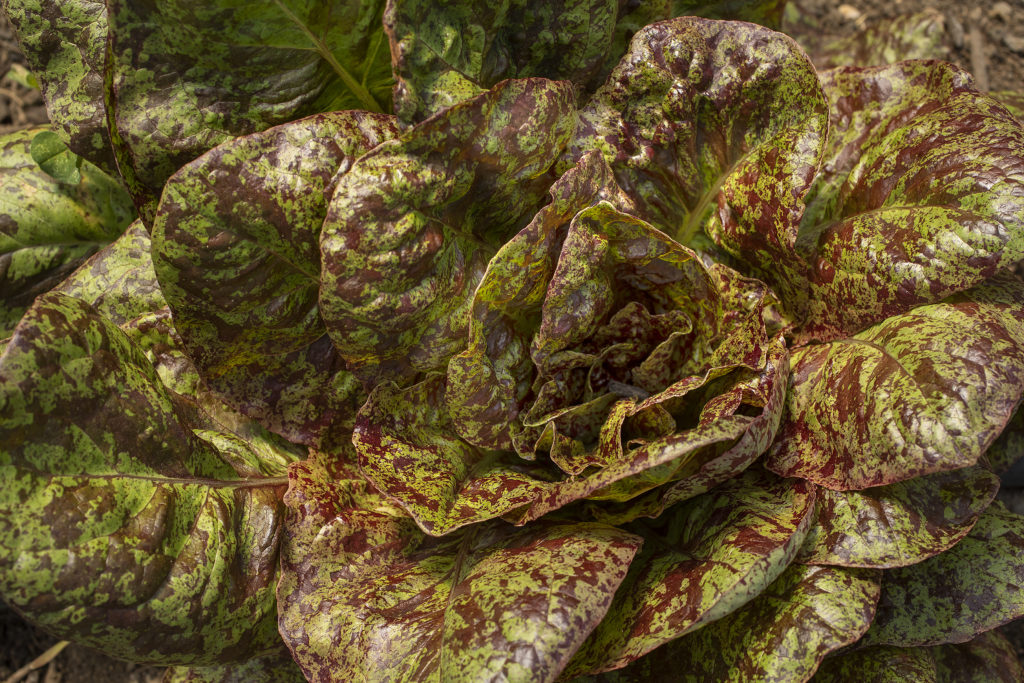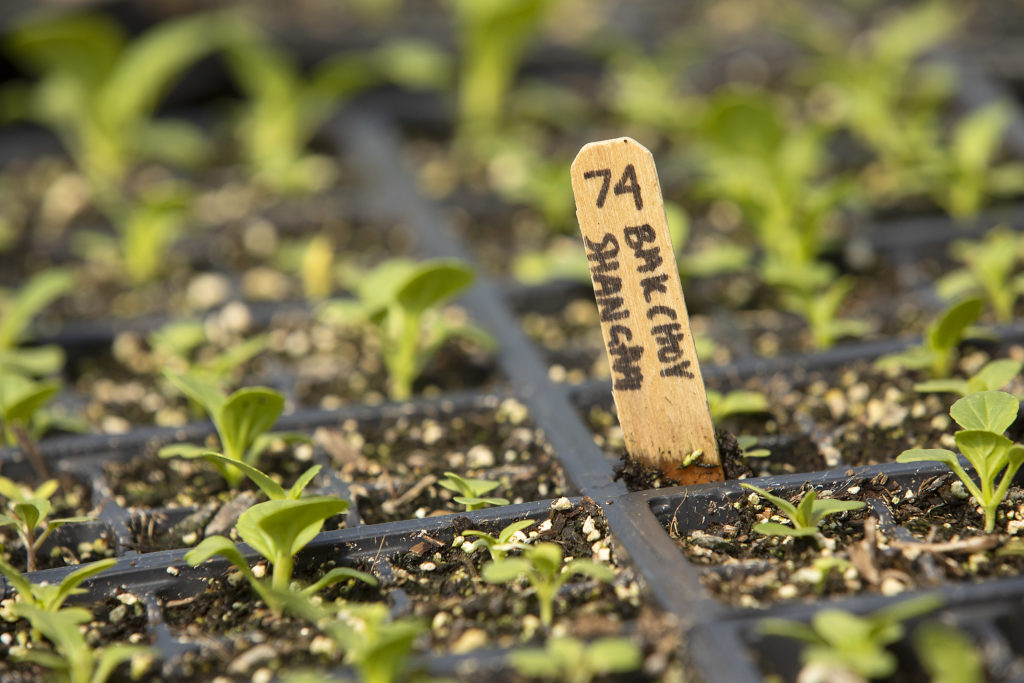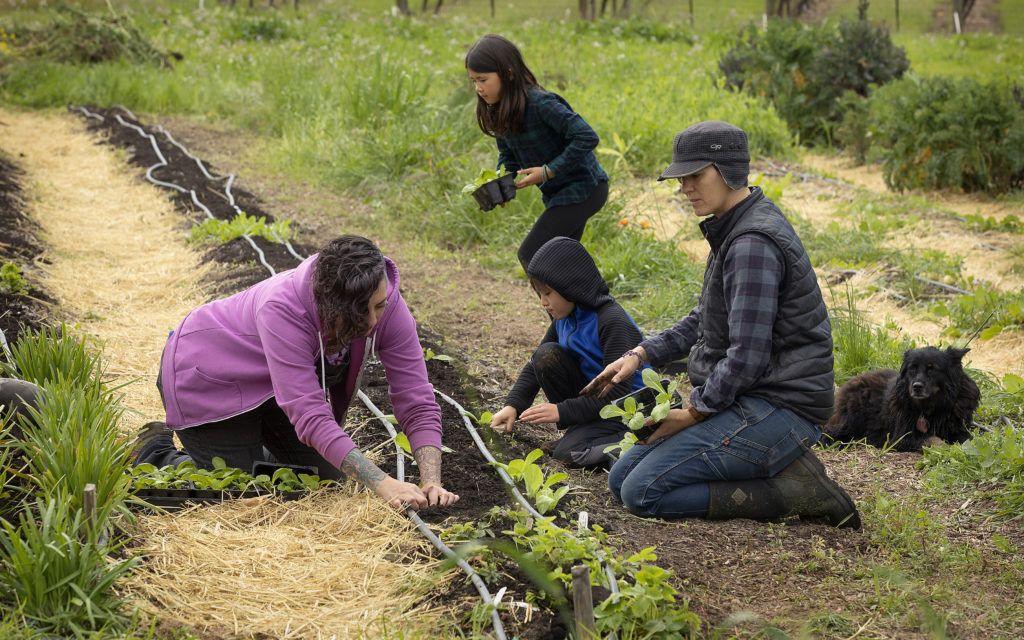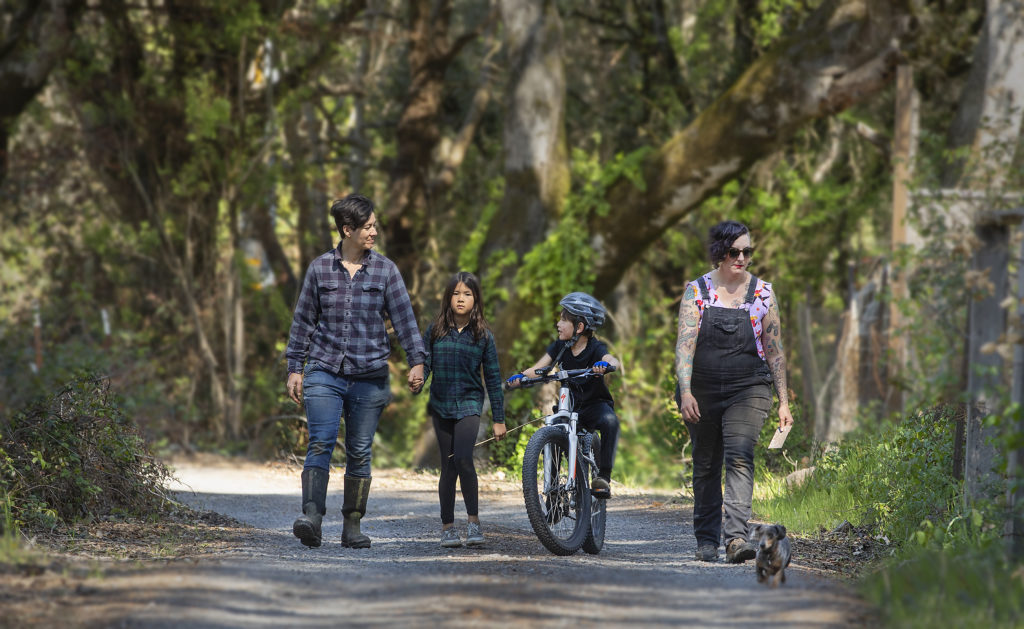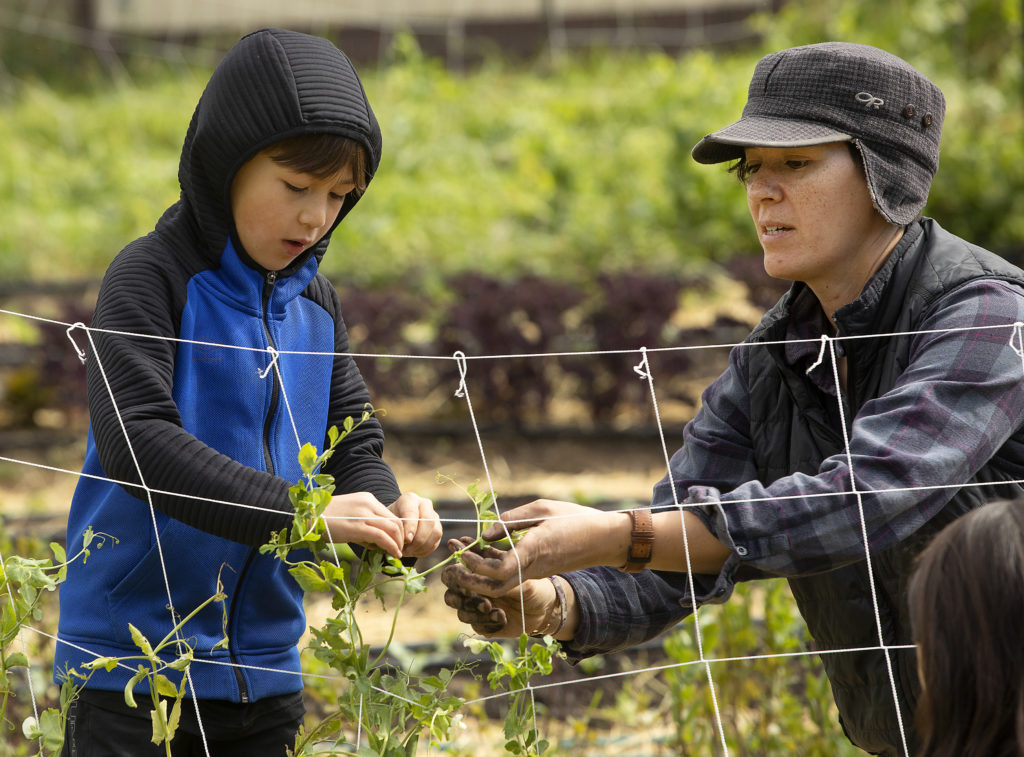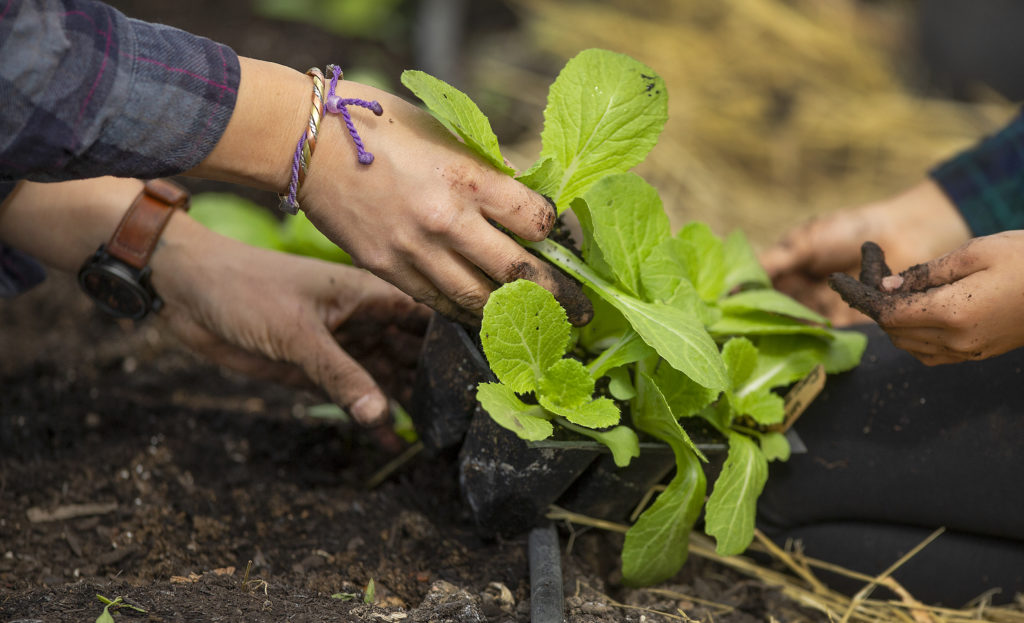Inside a hoop house at Sebastopol’s Radical Family Farms, potted seeds warmed by the morning sun are sprouting. The tiny starts of heritage Asian and German vegetables would be unfamiliar on many food tables in this west Sonoma County enclave. But for farm owner Leslie Wiser, the sticky heat enveloping the plastic-wrapped tunnel evokes warm memories of family.
Farm owner Leslie Wiser, a child of Taiwanese-Chinese and Polish-German immigrants, recalls the sensory pleasures of family meals she enjoyed growing up, especially those dinners when her grandparents’ favorite dishes were on the menu. For her Chinese grandmother, popo, it was lion’s head meatballs; for her German oma, kohlrabi (German turnip) in her signature white roux.
For the last two years, Wiser, with her partner Sarah Deragon, has drawn on her heritage to develop Radical Family Farms in Sebastopol, a groundbreaking operation growing specialty Asian and German vegetables, many of which would be unfamiliar on dinner tables in this west Sonoma County enclave.


With their wide variety of sustainably harvested produce — from bitter melon to Chinese mustard to Taiwanese eggplants — the couple has found their niche, selling to chefs and restaurants and, increasingly, through their CSA. But their mission is about more than profit. For Wiser, it’s also about finding herself in the land and passing her cultural inheritance to her children.
“The main focus of the farm has always been to grow vegetables as a way to explore my and my children’s multiracial heritage,” said Wiser, a mom of two.
Her aim also is to celebrate the cultural background of the larger community of Asian and Asian Americans here.
“I am interested in working with chefs and families and restaurants who are on a similar path that I am on,” she said, “using culturally relevant foods and produce and herbs to explore their Asian heritage.”
The elemental contributions Asians and Asian American people have made in Sonoma County is part of that heritage, though it’s often overlooked. More now than ever, with recent instances of harassment and flat-out violence against Asian people, it’s important to acknowledge those contributions, Wiser said.
“There has always been anti-Asian sentiment in this country,” notably with the Chinese Exclusion Act of 1882. “It’s time for us in Sonoma County to really see that and not minimize that, especially with the contributions that the Chinese laborers made in the community … building Sonoma County into the Wine Country destination that it is today.”
Food traditions
After a career in the corporate world in the Midwest, Wiser made the bold decision to move to California and buy a 3-acre property in Sebastopol to stake her claim as a farmer. Her overarching ambition is to reestablish and preserve her family’s traditions that in the past had seemed lost to the tides of war and dislocation.
Before the first planting, in spring 2019, Wiser asked her older relatives to identify foods they missed most from their native countries.
“That was basically the market research, and then I found the seeds and started growing them,” she said. “When I planted everything, I didn’t really have any customers.”
She soon found takers, however, including Asian and Asian American chefs in several well-known San Francisco and Oakland restaurant kitchens. She and Deragon started a CSA, too. They began with 15 members as they built out their farm; now their CSA has 150 members and a waiting list. Like other farmers, the couple saw interest in their CSA jump with the pandemic. They also began a flower CSA last year, with cut flowers Wiser originally planted to attract pollinators and manage garden pests.
“The pandemic changed the landscape, and everybody saw the collapse of the supply chain,” Wiser said. “Grocery stores were overrun and people really wanted to get their produce as directly as possible.”
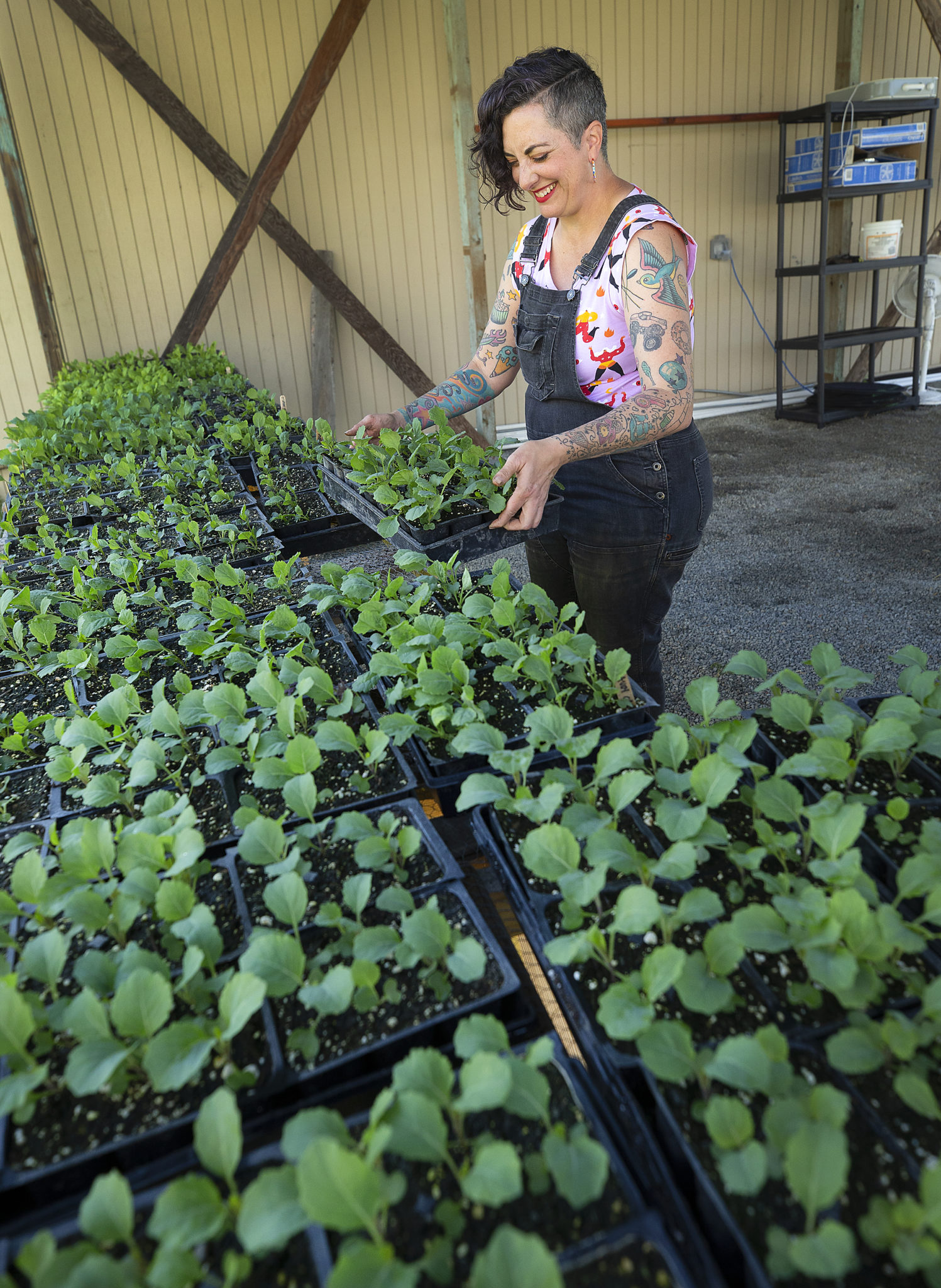
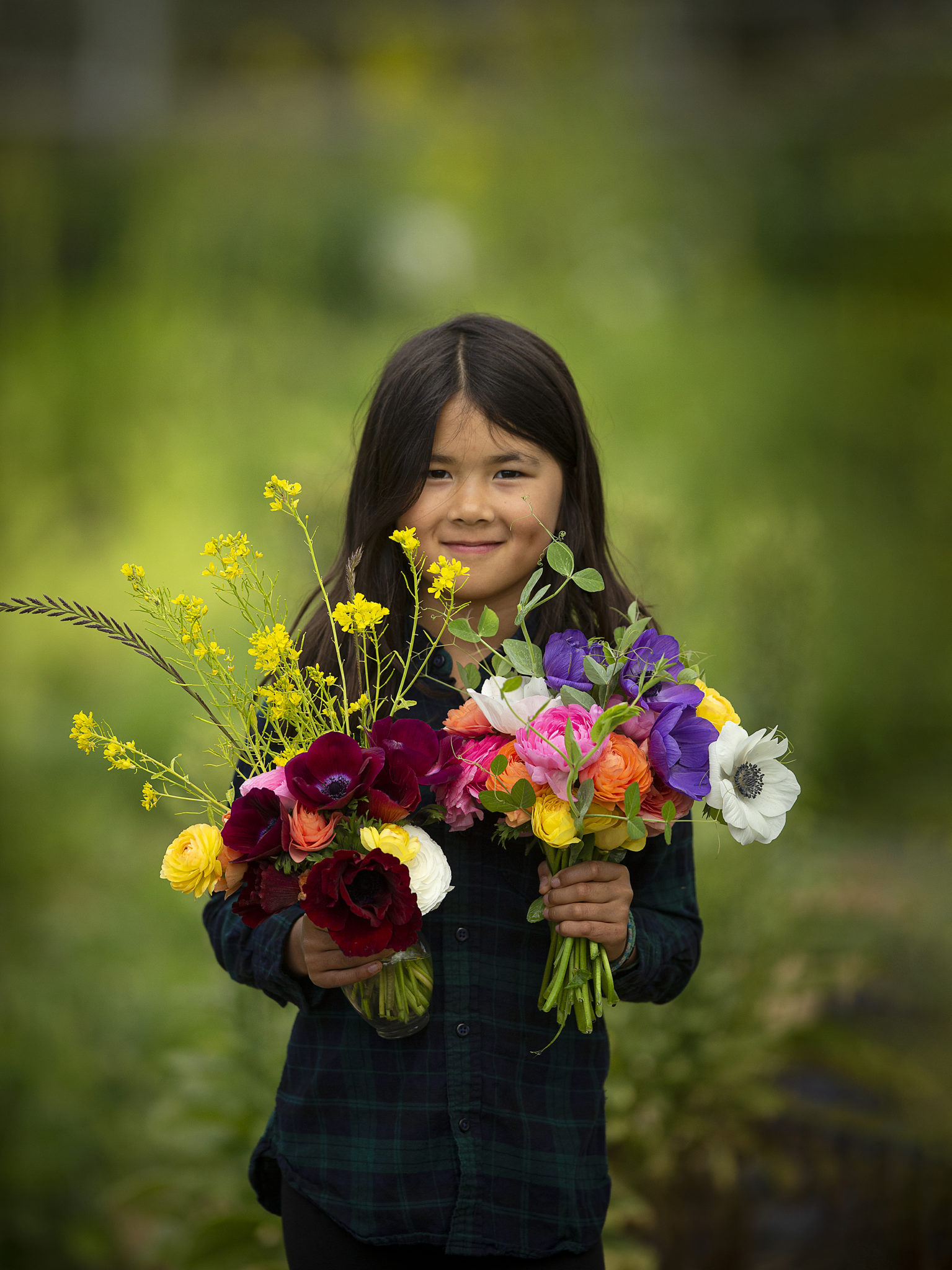
Deragon, a professional photographer, teases each week’s sumptuous offerings on Instagram for produce-hungry consumers. The variety is vast, and a typical summer harvest might include Napa cabbage, kohlrabi, Chinese mustard, Chinese stem lettuce, Taiwanese eggplants, bitter melon, daikon radish, Japanese and Chinese cucumbers, Korean old cucumbers, Tokyo salad turnips, kabocha, winter melons, several varieties of bok choy, flat Taiwanese cabbage and Taiwanese carrots.
Wiser extols what she calls “identity farming,” loosely based on the idea that what nourishes us frames who we are.
“The soil, the plants, the work — all of it relates and is tied to a long chain of events and places that help us to locate ourselves in the vast universe,” she said. “Lose those connections and we are lost.”
After World War II, Wiser’s maternal grandparents fled China for Taiwan to escape Communist rule. On her father’s side, her grandfather, a German soldier, married her grandmother, a Jewish woman who had lived through the war in Germany and Poland. They later emigrated to America. Wiser’s parents confronted their own challenges living in the conservative Midwest as an interracial couple. Wiser said Radical Family Farms is a nod to these “radical ancestors” and to her current relationship with Deragon in a “queer, blended, multiracial” family.
“I think I would have turned to farming sooner if I had seen more farmers like me. Visibility and representation matter … especially to folks who are ambiguous in race and gender,” she said.
Still, she is disturbed by the anti-Asian persecution and violence she sees and reads about today, from Asian-owned restaurants tagged with racial slurs to attacks on elderly Asians on the street. The incidents themselves, but also the apathy of bystanders, has been difficult to see, she said.
“I know the power of bystander intervention, because I’ve done it on behalf of my mother,” Wiser said. She’s witnessed her mother being harassed and insulted and has stepped in. She encourages others to do the same.
People can help also by supporting Asian-owned businesses, she said, supporting those people who go into work every day fearful of threats or worse.
Building a home
Wiser first fell in love with the outdoors during backcountry summer camps in Minnesota, and with family farming on an internship in Alaska. After moving to Sonoma County in 2013 with her two children in tow, Wiser took courses in sustainable agriculture at Santa Rosa Junior College while she searched for a suitable location to farm. The idea came to her one night while she was reading Margaret Wise Brown’s children’s classic, “The Little Red Barn,” to her daughter.
“That just jogged my memory,” she said. “I had completely forgotten about that whole internship, and then I was just thinking about how I wanted to raise my children.”
The scenic farm, at the end of a gravel road bordered by vineyards and horse pastures, is a place for Wiser and Deragon to find purchase. A happy chorus of barking greets visitors. (When they met, Wiser and Deragon were delighted to discover they each had a dog named Bear.) The farm adheres to environmentally-friendly practices such as minimal tillage and a strict ban on spraying. The work is labor-intensive as well as “therapeutic,” according to Deragon, who finds solace in pulling weeds.
The family is learning as they go, contending with the perennial challenges of working the land. Birds devoured the seeds of their first cover crop. Undeterred, they threw down more seeds. There are unexpected disruptions as well, which in Sonoma County include the threat of wildfires. In 2019, the family was forced to evacuate the farm due to mandatory power outages, finding shelter in Sonoma with Wiser’s parents.
“Nothing’s getting watered for like six days,” Wiser said of the forced time away. “With farming,” Deragon added, “it’s life or death. It takes it to the next level in terms of worry and time-management.”
But they said they were pleasantly surprised by the amount of income the farm generated in its first year, 2019. More than money, however, is the realization that a dream has taken root.
Strolling the rows of heritage crops during a family reunion on the farm one summer, Wiser’s elderly aunties were brought back to a time in their lives they thought had vanished. They delighted in varieties of veggies they hadn’t seen or cooked with in years, varieties Wiser had cultivated based on their picks.
At that moment, things came full circle, Wiser said. “It’s just like everything I’ve always wanted to do and learn and explore was right here in Sonoma County.”
To buy Radical Family Farms heritage Asian and German veggies or subscribe to produce deliveries via their CSA farm box, visit the farm’s Instagram @radicalfamilyfarms or their website, radicalfamilyfarms.com.



